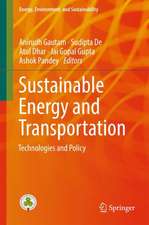Biomass Conversion: The Interface of Biotechnology, Chemistry and Materials Science
Editat de Chinnappan Baskar, Shikha Baskar, Ranjit S. Dhillonen Limba Engleză Hardback – 8 mai 2012
| Toate formatele și edițiile | Preț | Express |
|---|---|---|
| Paperback (1) | 953.97 lei 6-8 săpt. | |
| Springer Berlin, Heidelberg – 10 iun 2014 | 953.97 lei 6-8 săpt. | |
| Hardback (1) | 958.38 lei 6-8 săpt. | |
| Springer Berlin, Heidelberg – 8 mai 2012 | 958.38 lei 6-8 săpt. |
Preț: 958.38 lei
Preț vechi: 1168.76 lei
-18% Nou
Puncte Express: 1438
Preț estimativ în valută:
183.41€ • 190.77$ • 151.41£
183.41€ • 190.77$ • 151.41£
Carte tipărită la comandă
Livrare economică 14-28 aprilie
Preluare comenzi: 021 569.72.76
Specificații
ISBN-13: 9783642284175
ISBN-10: 3642284175
Pagini: 450
Ilustrații: XXVIII, 468 p.
Dimensiuni: 155 x 235 x 32 mm
Greutate: 0.82 kg
Ediția:2012
Editura: Springer Berlin, Heidelberg
Colecția Springer
Locul publicării:Berlin, Heidelberg, Germany
ISBN-10: 3642284175
Pagini: 450
Ilustrații: XXVIII, 468 p.
Dimensiuni: 155 x 235 x 32 mm
Greutate: 0.82 kg
Ediția:2012
Editura: Springer Berlin, Heidelberg
Colecția Springer
Locul publicării:Berlin, Heidelberg, Germany
Public țintă
ResearchCuprins
Biomass Conversion to Energy.- Biomass Energy.- Lignocellulose Pretreatment by Ionic Liquids: A Promising Start Point for Bio-Energy Production.- Application of Ionic Liquids in the Conversion of Native Lignocellulosic Biomass to Biofuels.- Catalysts in Thermochemical Biomass Conversion.- Fatty Acids Derived Fuels from Biomass via Catalytic Deoxygenation.- Biobutanol: The Future Biofuel.- Molecular Genetic Strategies for Enhancing Plant Biomass for Cellulosic Ethanol Production.- Production of Bioethanol From Food Industry Waste: Microbiology, Biochemistry and Technology.- Enhancement of Bio-Hydrogen Production by Two-Stage Systems: Dark and Photo-Fermentation.- Organosolv Fractionation of Lignocelluloses for Fuels, Chemicals and Materials: A Biorefinery Processing Perspective.- Lignin as Source of Fine Chemicals: Vanillin and Syringaldehyde.- Liquefaction of Softwoods and Hardwoods in Supercritical Methanol: A Novel Approach to Bio-Oil Production.- Bioextraction: The Interface of Biotechnology and Green Chemistry.
Textul de pe ultima copertă
The consumption of petroleum has surged during the 20th century, at least partially because of the rise of the automobile industry. Today, fossil fuels such as coal, oil, and natural gas provide more than three quarters of the world's energy. Unfortunately, the growing demand for fossil fuel resources comes at a time of diminishing reserves of these nonrenewable resources. The worldwide reserves of oil are sufficient to supply energy and chemicals for only about another 40 years, causing widening concerns about rising oil prices. The use of biomass to produce energy is only one form of renewable energy that can be utilized to reduce the impact of energy production and use on the global environment. Biomass can be converted into three main products such as energy, biofuels and fine chemicals using a number of different processes. Today, it is a great challenge for researchers to find new environmentally benign methodology for biomass conversion, which are industrially profitable as well. This book focuses on the conversion of biomass to biofuels, bioenergy and fine chemicals with the interface of biotechnology, microbiology, chemistry and materials science. An international scientific authorship summarizes the state-of-the-art of the current research and gives an outlook on future developments.
Caracteristici
Gives state-of-the-art of biomass conversion plus future development
Connects the applications into the fields of biotechnology, microbiology, chemistry, materials science
Written by international experts
Includes supplementary material: sn.pub/extras
Connects the applications into the fields of biotechnology, microbiology, chemistry, materials science
Written by international experts
Includes supplementary material: sn.pub/extras




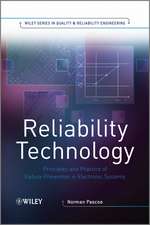



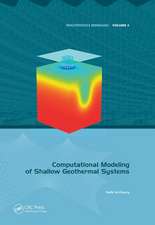
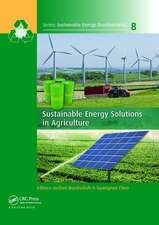



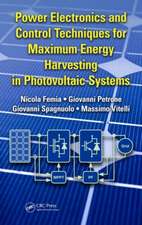
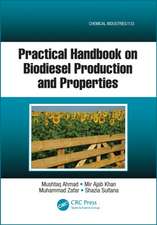
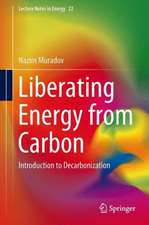

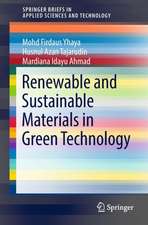

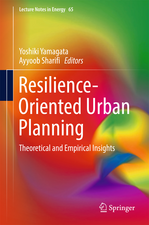



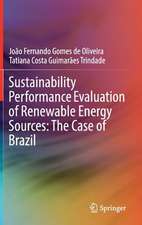
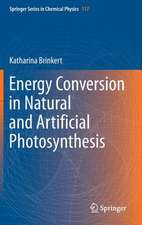
![Hydroboration and Organic Synthesis: 9-Borabicyclo [3.3.1] nonane (9-BBN)](https://i4.books-express.ro/bt/9783642080340/hydroboration-and-organic-synthesis.jpg)

